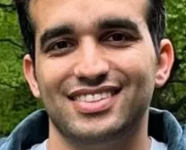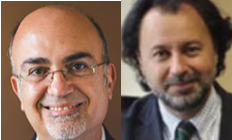March 15, 2019

Jason Rezaian still has a periodic nightmare from his 544 nights in Evin Prison, where his interrogator, Kazem, is telling him that he is still in his cell because he has failed to say or do exactly what was required of him by the state.
For the first few months after plainclothes secret police grabbed Rezaian in July 2014, he was repeatedly threatened with execution. Sometimes, he was told he would be beheaded as a traitor.
Rezaian would see other doomed suspects on his days going to and from court. They were killed in Evin’s execution square, close to his cell.
“For the first six or seven months, [the threat] was pretty regular,” recalls Rezaian in an interview with The Guardian of Britain. “It was the constant anxiety of: ‘Are they going to kill me, are they going to keep me forever or am I going to be released tomorrow?’
“You don’t know what to believe. That’s the method. That’s the torture. People say: ‘Well, you weren’t beaten.’ I say they never laid a finger on me, but I was certainly tortured, and they have to pay for that.”
Rezaian, 42, has now told his story in a memoir, “Prisoner – My 544 Days in an Iranian Prison.”
After being elected to the presidency in June 2013, Hassan Rohani led relative pragmatists in an attempt to break out of international isolation. By the time of Rezaian’s arrest, negotiations over Iran’s nuclear program were in full swing. Rezaian was in Vienna to cover the talks shortly before he was detained. He believes he was collateral damage from an attempt to sabotage those talks by hardliners.
He resists the depiction of Iranian infighting as a good vs. evil struggle, pointing to shades of grey among Iran’s moderates. Rezaian sees the Pasdaran as wanting to turn Iran into a much more absolutist regime, resembling North Korea, while the Rohani circle would rather have something more like China, opening up to the world, but keeping the essence of the regime intact. “They want to have their cake and eat it,” he told The Guardian.
He is also not going to forget that Foreign Minister Mohammad-Javad Zarif repeated espionage allegations against Rezaian in public and private as a means of justifying Rezaian’s continued detention during the nuclear talks.
His jailers finally gave up their efforts to force him to confess to espionage, and his high profile as The Washington Post’s Tehran correspondent meant they did not attempt physical torture.
He was charged with doing what he was doing, writing articles—but painted in a sinister light with brushes dipped in conspiracy theories.
His many articles about food and pastimes (his last report was about Iranian baseball players) were, his accusers said, insidious efforts to sap Iran’s revolutionary will and break down the walls protecting the purity of the Islamic Republic.
“I think it’s going to stick with me for a very long time,” Rezaian said. “It sounds trite, but my trust in the world has been shaken. Like many foreign correspondents, I used to be pretty intrepid in where I was willing to go. Now I’m not. I have to have very concrete plans. I get anxious and paranoid if I don’t know how I’m going to get back to my hotel. All these things are so counter to the way that I lived for so many years…. I don’t do well in crowds. And I don’t do well in artificial lighting because I experienced it 24/7.”
Those fears have only grown deeper and darker since the murder of his Washington Post colleague, Jamal Kha-shoggi, last October. Just a few months earlier, they had been discussing their common experience of exile, and their contrasting impressions of each other’s countries, Saudi Arabia and Iran.
“We were kindred spirits, in the sense that we both felt forced out of place – that these governments didn’t want to see us in their midst any longer,” Rezaian says of those conversations. “His murder had very immediate effects on me and my wife, psychologically.”
Rezaian says of his interrogators, “As vicious as they were in the way they talked to me, they were also human and made mistakes and there were some kindnesses. They very much believed they were doing God’s work, and there was an element of trying to get you on their side: ‘If you just follow our light, you’ll be safe’.”
After they gave up trying to get their captive to confess to being a spy, his interrogators spent much of their time with him debating politics and philosophy. Rezaian found himself looking forward to the interrogation sessions as a break from the monotony of incarceration.
A deal for his release was finally reached in January 2016. The 2016 US presidential primaries were about to get under way, and in the last minutes as they waited for Rezaian’s transport home to be arranged, his interrogators had a final question for him.
“While we still have you, explain to us about this electoral college,” one of them demanded. “It makes no sense to us.”
Rezaian assured them they were not alone. Ten months later, it was the US Electoral College system that assured Trump’s election, despite Hillary Clinton easily winning the popular vote.
Even before the primaries, Rezaian’s Iranian captors told him Donald Trump would become president, provoking a snort of derision from the returning American. “You guys are even dumber than I thought,” he told them.
“It’s very simple,” one of them replied. “Trump is the candidate that hates Muslims most.”
Rezaian is sometimes invited to speak to rightwing groups that advocate regime change in Iran, on the mistaken assumption that his experience would have made him an enthusiastic cheerleader for Trump’s campaign of maximum pressure.
“You can hate the regime in Iran, and be opposed to the Trump Administration’s policies,” he says. “In my experience, the majority of Iranian people feel that way. Unfortunately, there is this zero-sum narrative in the US right now that these guys have to be ground down by whatever means necessary, and the Iranian people are going to thank us later. I think that’s disingenuous at best.”
Maximum pressure, the strangling of the Iranian economy, is only putting off real democratic change, Rezaian insists. It is a task best left to Iranians.
“The Iranian people have seen through theocracy and have seen through authoritarianism. They want to be integrated into the world,” he says. “They will have their day of reckoning. But we are not there yet.”

























